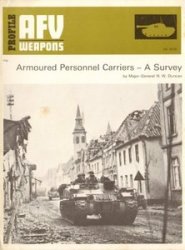During the 19th century, impressment, or the appropriation of private property during emergencies for military use, was recognized by American military precedent as a power granted both civilian and military leadership. During the first year of the Civil War, the Confederate government used this policy to obtain needed supplies. However, public outcry against it led to severe limits on the practice, and the government quickly rejected it as a regular means of obtaining supplies.
By late 1861, however, the Confederate supply agencies experienced increasing shortages of raw materials. The lack of available materials was compounded by the hoarding of supplies by speculators. As a result, Quartermaster General Abraham C. Myers and Commissary General Lucius B. Northrup requested Secretary of War JuDAH P Benjamin to grant them and their bureau purchasing agents impressment powers. In November 1861, Myers granted his subalterns the authority to impress if “absolutely demanded by the public necessities.” Still, the practice of impressment remained limited through spring 1862.
During the first half of 1862, however, instances of impressment became more common as the government seized medical supplies from blockade runners and speculators, took quartermaster hardware, appropriated forage, and forced the sale of horses held by reluctant sellers. In a sweeping and unprecedented move, the secretary of war began impressing major items such as railroad iron and distilleries.
While such seizures created some public opposition, it was the extension of policy to foodstuffs that created widespread resistance. This step was believed necessary by commissary officers unable to feed the soldiers in the field. Outraged private citizens and speculators evaded impressing officers and in some cases destroyed food items rather than turn them over to commissary officials. The War Department attempted to defuse the conflict by creating formal rules for impressing. For example, they devised a universal price schedule for foods like flour and sugar. Individuals were given the option to accept the price offered or face impressment. Agents provided evidence of authorization from their commanding officer, paid on the spot, left enough subsistence for the family, and provided written forms detailing the transaction. To ensure that no abuses occurred, the supply bureaus maintained records open to the public. Even this more formalized policy brought a loud protest from Confederate newspapers and citizens.
In March 1863, Virginia speculators challenged War Department rules in state courts and forced the Confederate Congress to take action to uphold the system. Congress enacted legislation that legally established in civil law the practice of military impressment. They strongly agreed that only extreme measures could keep the rebel armies in the field.
War Department officials worked to soften the impact of impressments, promising in one general order that “wherever the requisite supplies can be obtained by the consent of the owner at fair rates, and without hazardous delay, the military authorities will abstain from the harsh proceeding of impressment.” Yet, through 1863, the seizures continued.
Increasingly, field agents resorted to arbitrary actions to obtain raw goods. As a result, civilian opposition hardened, and as the war dragged on the program lost much of its utility. The failure stemmed in large part because the law enacted by Congress lacked any punitive provisions. Coupled with the open resistance of local police and civil authorities to impressing officers, the program yielded smaller and smaller returns. By 1864, it became clear that impressment had failed as a means of domestic procurement of military supplies, and the government rescinded it as an official policy.
See also foraging; homefront; rules of war.
Further reading: Richard D. Goff, Coirfederate Supply (Durham, N. C.: Duke University Press, 1969).
—James Daryl Black




 World History
World History









